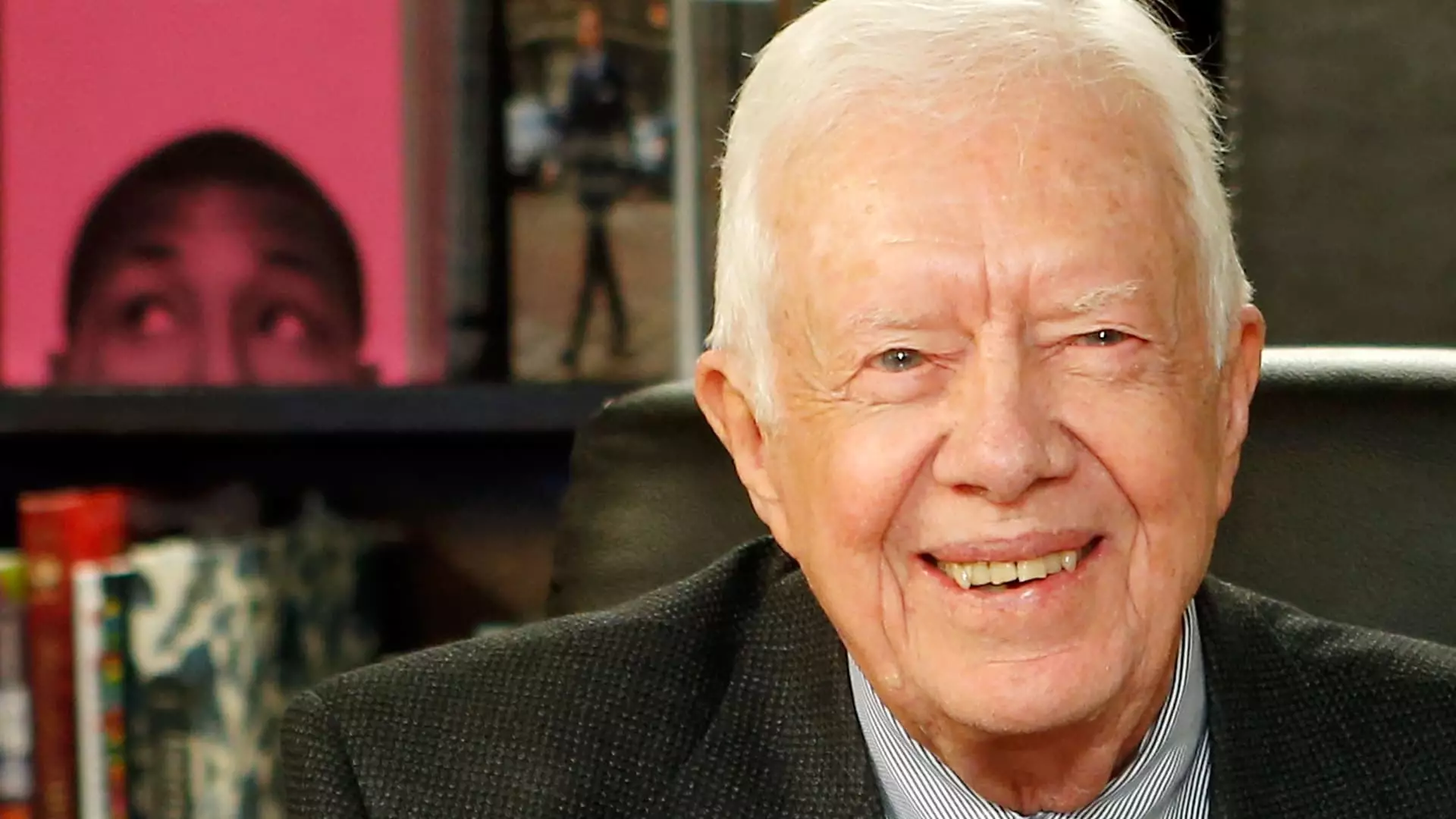One of the most complex figures in American political history is Jimmy Carter, the 39th President of the United States. Emerging from a background steeped in both service and humility, Carter’s ascent to the presidency marked a significant moment in the country’s journey through the late 20th century. His presidency and post-presidency journey prompt a critical examination of character, governance, and the moral imperatives of leadership.
Born in 1924 in Plains, Georgia, Jimmy Carter’s journey was defined by modesty and an unwavering commitment to public service. His statement during his acceptance speech at the Democratic National Convention in 1976 highlighted his humble origins: “My name is Jimmy Carter, and I’m running for president.” This simple yet profound declaration set the stage for a campaign that aimed to contrast with the political turbulence of the Watergate scandal that had consumed his predecessor, Richard Nixon.
His leadership style was characterized by empathy and authenticity, a stark contrast to the political machinations often seen in Washington, D.C. Upon taking office, Carter’s inaugural address emphasized a moral responsibility to foster human rights globally, articulating a vision that combined U.S. interests with ethical considerations. As he stated, freedom and human rights were central not just to American values, but to global stability.
Carter faced numerous domestic challenges, including the energy crisis of the late 1970s. In a nationally televised address regarding the crisis, he famously dubbed the effort to address energy dependence as the “moral equivalent of war.” This phrase illustrated his belief that the stakes were as high as those of a military conflict. However, it also revealed a president grappling with the complexities of modern governance, where the solutions required collective will and sacrifice—a call to arms of a different kind.
Yet, Carter’s decisions were often scrutinized for their perceived passivity. His refusal to take immediate military action against Iran in response to the hostage crisis demonstrated a commitment to his principles over popular opinion. In hindsight, this fortitude reflected Carter’s enduring belief in human rights and ethical leadership, even when faced with overwhelming pressure to respond aggressively. In subsequent years, he would take pride in his commitment to peace and human rights, arguing that he might have won re-election if he had chosen a different path.
Carter’s foreign policy was marked by significant achievements but also faced daunting challenges. His role in brokering peace between Egypt and Israel established a diplomatic precedent but left the lingering conflict in the Middle East unresolved. In interviews, he expressed regret that a longer term in office could have facilitated the full realization of the peace agreements he negotiated.
Moreover, his 2006 book, “Palestine: Peace, Not Apartheid,” struck a nerve, sparking controversy for its wording and implications. The backlash prompted Carter to reflect on his language and the consequences of how messages on sensitive issues can be interpreted, showcasing his deep concern for clarity and intent in discourse. It illustrated the complex dynamics between advocacy and realpolitik, especially in regions fraught with historical grievances.
Carter’s post-presidency years transformed him into a global advocate for human rights and humanitarian efforts, often working through The Carter Center to address disease, promote democracy, and mediate conflicts. His resolve in the face of personal health challenges, approaching life with faith and acceptance, is encapsulated in his reflections about death and legacy.
Jimmy Carter’s candid acknowledgment of life and death resonated deeply with many; upon battling cancer, he stated, “I found that I was absolutely and completely at ease with death.” This mature perspective not only reveals the core of his character but also reinforces the values he espoused throughout his life—compassion, service, and peace.
Jimmy Carter’s legacy is multifaceted; it is interwoven with a commitment to ethical governance, human rights advocacy, and an unwavering desire for peace. His journey—from a peanut farmer to an internationally recognized humanitarian—provides a lens into the complexities of character-driven leadership. As history continues to unfold, Carter’s contributions serve as a poignant reminder of the necessity for moral clarity in both personal and global pursuits.

Leave a Reply